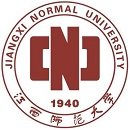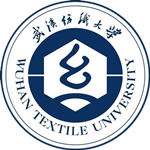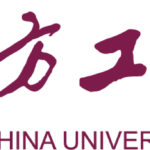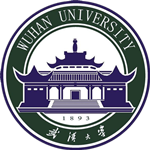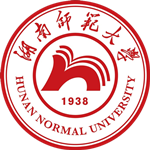University Description
Jiangxi Normal University (JXNU), situated in Nanchang, capital city of Jiangxi Province, is co-sponsored by the Ministry of Education and the Jiangxi Provincial Government. It is listed in the Midwest University Fundamental Capacity Building Project. JXNU offers degrees in Literature, History, Philosophy, Economics, Management Science, Law, Natural Science, Engineering, Education, and Art. The University is quite influential in the political, economic, cultural and social development of Jiangxi Province. It is designated as a key local (teacher-training oriented) university enjoying priority in development.
JXNU consists of 2 campuses, i.e. Yaohu Lake Campus and Qingshanhu Lake Campus with a total area of 233 hectares and building area of more than 1.4 million square meters.
History
The inspiration of establishing the university was derived from The White Deer Grotto Academy in Mt. Lushan
1940: First founded as National Chung Cheng University
1949: Renamed National Nanchang University
1953: Renamed Jiangxi Teachers College
1983: Renamed Jiangxi Normal University
2003: Merged with Jiangxi Worker’s University of Finance (Jiangxi Banking School)
Education Ideology
School Motto: Ponder Prudently and Practice Earnestly, Be Impartial and Upright
School Tradition: Be United and Diligent, Seek Truth and Make Innovations
Development Philosophy: Establish the university with quality, talents, innovations, culture and harmony
School Spirit: Be Patriotic and Glorify the University, Democracy and Harmony, Be Realistic and Pragmatic, Be open minded and Innovative
Academic Development
The university is a doctoral degree granting unit and the first batch of bachelor and master degree granting units. It now includes 23 professional colleges, 3 industrial colleges (jointly built), 1 independent college (College of Science and Technology) and 88 undergraduate majors. There are 5 disciplines ranked among the world’s 1% disciplines by ESI (chemistry, material science, engineering, and agricultural science, Environmental/Ecology) and 5 top disciplines in Jiangxi Province (Marxist theory, chemistry, education, Chinese language and literature, geography). The university not only possesses 13 doctoral degree programs, including 12 doctoral degree programs of first-level disciplines (Marxist theory, Chinese language and literature, chemistry, psychology, education, Chinese history, mathematics, geography, management science and engineering, sports science, physics, biology), 1 professional doctor’s- degree program (doctor of education), 5 Postdoctoral Workstation, 33 master’s-degree programs of first-level disciplines, and 18 professional master’s-degree programs. In the fourth round of national discipline evaluation, Marxist theory ranked as an A discipline, while education, psychology, Chinese language and literature, mathematics and chemistry ranked as B disciplines.
Faculty and Staff
JXNU has a total of 2,781 faculty and administrative staff on its payroll (including personnel agents), among whom 1,819 are full-time teachers and 1,108 are doctors. 52.28% of the faculty members are 45 years old or less; 59.92% attain senior academic rank; 91.31% hold Master’s or higher degrees.
Talent cultivation
Nearly 27400 full time bachelor program students, over 7700 master and doctoral program students and 10,000 continuing education students are studying in the university. The university has been awarded 4 national teaching achievement awards and 40 national first-class professional construction programs. It has also carried out 2 national comprehensive professional reform pilot projects, 2 national off-campus practical bases of education, 1 national humanities education base, 2 national experimental teaching demonstration centers, and 32 national first-class undergraduate courses.
Scientific Research
The university currently has one National Engineering Research Center, one National Joint Engineering Research Center, one national specialized freshwater fish processing technology research and development center, one National University Science Park, two International S&T Cooperation Bases, two China Ministry of Education Key Laboratories, one General Administration of Sport Key Lab, one Ministry of Education country and regional research center, one Ministry of Foreign Affairs country and regional research center and 1 state level S&T service platform, etc.
Since 2011, the university has been awarded more than 100 projects, including major international cooperative research projects of the National Natural Science Foundation of China, key projects of the National Natural Science Foundation of China, key projects of the National “863” Program, major special projects, preliminary research projects of the “973” Program, major special projects for national international cooperation, and national science and technology support projects, etc. The university has received a total of 808 projects from the National Natural Science Foundation of China. In addition, it has also received 10 major bidding projects, 1 major commissioned project and 27 key projects from the National Social Science Foundation of China, with a total of 350 projects awarded from the National Social Science Foundation of China.
International Collaboration
JXNU adheres to the strategy of education openness, actively promotes cooperation and exchange with foreign educational institutions, actively integrates into the national “One Belt, One Road” initiative, and carries out mutual credit-recognition, mutual degree granting, joint training, mutual visits of faculty and students, humanities exchanges and scientific research cooperation with more than 150 universities and institutions in more than 30 countries and regions. The university has more than 10 international academic research bases and 2 Sino-foreign cooperative school projects. It is also a member of the China-Russia Education University Alliance and has initiated the establishment of the Confucius Institute Alliance in Jiangxi Province. It is also a member of the China-Russia Education University Alliance and has initiated the establishment of the Confucius Institute Alliance in Jiangxi Province. The university has undertaken 3 Confucius Institutes in cooperation with foreign educational institutions, among which the Confucius Institute at the University of Antananarivo, Madagascar was conferred the title of “Model Confucius Institute”. JXNU has enrolled students from more than 40 countries and regions, and is a host institution for Chinese government scholarships, Jiangxi provincial government scholarships and international Chinese teacher scholarships for international students.

